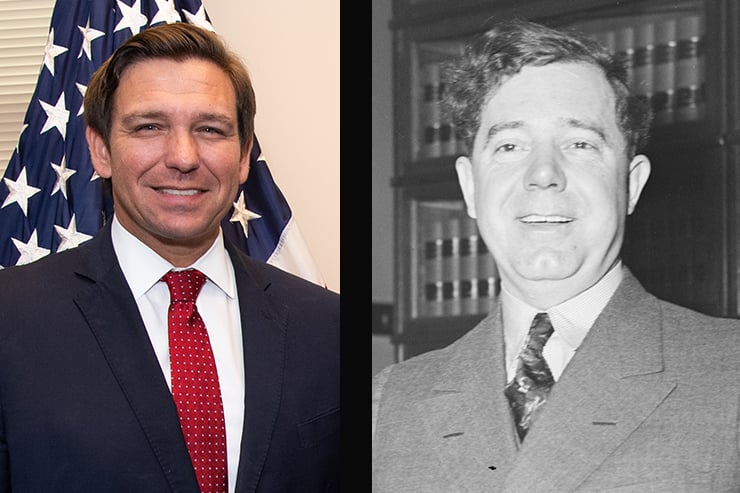On the eve of the midterm elections, President Joe Biden’s Justice Department announced it would monitor “compliance with the federal voting rights laws” in key states. That statement followed the dubious claim by White House Press Secretary Karine Jean-Pierre that it would be perfectly normal for the midterm election results to be delayed by several days. “We may not know all the winners of elections for a few days. It takes time to count all legitimate ballots in a legal and orderly manner,” Jean-Pierre said at a press briefing. “That’s how this is supposed to work.”
On the contrary to Jean-Pierre’s statements, when a precinct has a long delay in counting votes, it is usually a troubling sign and raises suspicion about the integrity of the vote there. Delays and voting irregularities in several Democrat-leaning urban districts marred the credibility of the 2020 election, about which there are still many lingering questions. During the recent midterms, Democrats preemptively declared any outcome other than one favorable to their party not only unacceptable, but an outright threat to democracy. As a result, Republican voters are understandably wary of any direct oversight of state elections by the Biden administration. Indeed, Republican confidence in voting integrity had dropped before the midterms to a new low of 40 percent, according to a Nov. 4 Gallup survey.
Florida showed, however, that it is possible to challenge federal meddling in how states handle their elections. On Nov. 7, the Florida Department of State sent a letter to John “Bert” Russ, deputy chief & elections coordinator with the Voting Section of the Justice Department’s Civil Rights Division, stating that “the presence of federal law enforcement inside polling places would be counterproductive and could potentially undermine confidence.” The implication here is that at some point, there could be a standoff between state and federal governments, which may even result in the arrest by state law enforcement of a federal hall monitor. The question is whether Republicans would be up for going full Huey Long in the future.
“The Kingfish,” as Long was named, served first as the governor and then as a senator of Louisiana in the tumultuous 1930s. Though he was an early supporter of Franklin D. Roosevelt, Long eventually soured on FDR, as he believed the New Deal favored industrialists. Long embarrassed the State Department when he declared on the Senate floor that Wall Street was manipulating U.S. foreign policy. He was also part of the congressional effort that dealt Roosevelt a major setback on foreign affairs by opposing America’s entry into the World Court, which critics argued would subordinate the U.S. and its citizens to an international body of suspect impartiality.
Roosevelt was so fearful of Long as a presidential challenger that he sicced the Internal Revenue Service on him in 1934. According to Roosevelt’s son Elliot, his targeting of Long may have made his father “the originator of the concept of employing the IRS as a weapon of political retribution.” Roosevelt, in other words, attempted to use the federal government to influence the outcome of an election. Long responded in the Senate by pushing a bill authorizing Louisiana to fine and imprison anyone who infringed on the powers “reserved” to the state under the Tenth Amendment. It was widely understood as a warning shot aimed at Roosevelt and his federal agents.
Today, the Sunshine State essentially issued the same challenge to Biden as Long’s Louisiana did to Roosevelt. Florida Department of State General Counsel Brad McVay warned that Biden’s monitors are not permitted inside polling locations under Florida law. McVay cited Florida Statutes, which “lists the people who may ‘enter any polling room or polling place,’”—a list that does not include agents of the Justice Department. McVay assured that Florida “will ensure that there is no interference with the voting process.”
What if interference or, just as importantly, the perception of interference comes from the federal government? Would a Republican governor be prepared to detain these monitors? States are generally responsible for overseeing federal elections and doing so is justified as necessary to maintain confidence in the system. But the civil-rights regime that emerged in the 1960s complicates this state-level duty because it enables the federal government to override state laws and regulations.
Civil rights might sound nice, but what really matters is who has the power to administer and enforce under the pretense of safeguarding “rights.” As The Washington Times reported, John Russ himself has been a regular contributor to Democratic campaigns, including Obama’s. Or take Sharyn Tejani, who was one of the lead attorneys filing a Supreme Court brief defending a policy that led to white firefighters in Connecticut being refused promotions on explicitly racial terms. She recently joined Biden’s Equal Employment Opportunity Commission. The idea that the federal government as it is currently constituted could fairly treat civil rights issues is laughable.
In the aftermath of the midterms, there has been much soul-searching among Republican organizers over the underwhelming performance of the party, given the sorry state of the country, which should have made a Democratic drubbing easy. Some have proposed that the GOP finally embrace ballot harvesting and gear its political machinery to that end. Florida, the only state with a dominant Republican showing at the midterms, chose to deny federal monitors access to polling places. In any case, the future of the Republican Party will require more than merely asking people to vote in person on the day of an election and hope for the best.

Leave a Reply